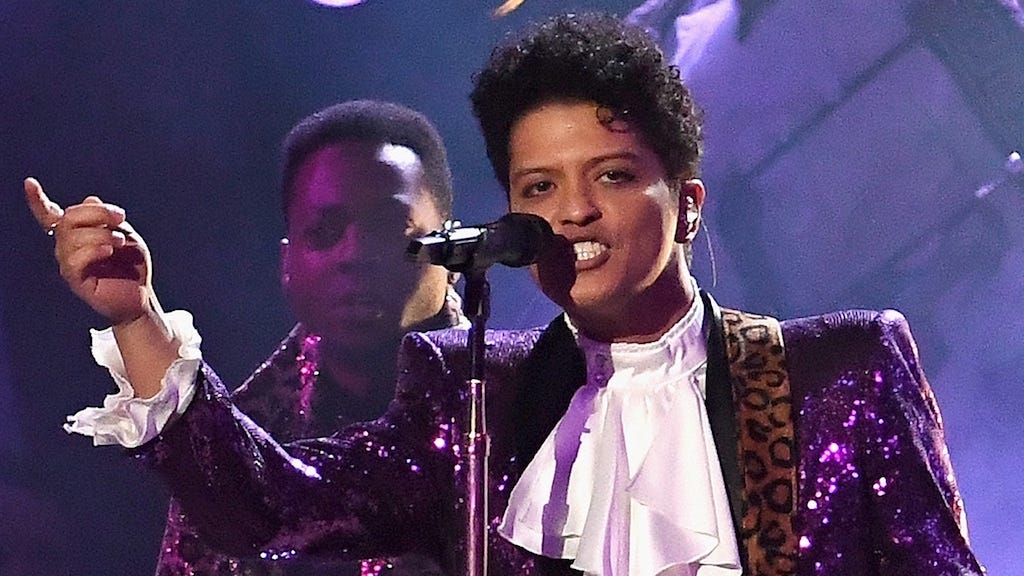
I started researching more about what businesses are out there.

How did you begin your journey towards only buying from black-owned businesses? But that statement puts non-blacks on a pedestal and blacks on the bottom. They say that we should be flattered that non-blacks like what we are doing. A lot of black people look to non-blacks for validation. We have to have more pride in our self-worth and our culture and uplift each other. We have to be more supportive of our own people and our own culture. I’m like, where were you when Jeremih was fighting with his label to release an album? Where was all this energy when people were pitting Beyonce, Rihanna, and Nicki Minaj against each other? We hate ourselves and we prefer to see black art come from non-black bodies. All the black people who are coming out now and defending Bruno Mars are crazy. What can black people do as consumers do to fight cultural appropriation? They’re black.” But when a white person does it, society heaps all this praise on it. With black people, it’s taken for granted that, “Of course they can rap, play basketball, and cook. White people like that don’t have to worry about anti-black racism-they have the privilege of crossover appeal. When it came out that is was two white, suburban people, everyone realized it was cultural appropriation. Like, “Yeah bitches, it’s time to make some bad-ass pie.” They got a book deal and blew up because no one knew who they were. It was a blog that posted their recipes in ebonics. They can’t get their careers or businesses off the ground. What is the economic impact that cultural appropriation has on black artists and black entrepreneurs?īlack artists can’t get ahead, they can’t get on, they can’t get amplified. It’s just like Miley Cyrus, but people are OK with Mars because he has a brown face.

He has a bunch of black bodies around him like props and accessories.

He dresses up in signifiers that have become stereotypes, like gold chains, unbuttoned silk shirts, and gold rings. Once they realized they couldn’t package blackness with a white face like Iggy's, they moved on to a brown face like Bruno's. But we cannot really speak enough about the fact that non-black people of color can benefit from racism because they are not black. In the last four of five years, we’ve gotten to the point where we can say that the Iggy Azalea stuff is not cool. What’s special about this moment right now? It’s a symptom of the racist society that we live in. It’s not a Bruno Mars-specific problem, or a music industry problem. We see this play out with other cultures as well. Like I said in the video, we want our black art to come from non-black bodies, because we live in a system that devalues blackness. Racism touches every aspect of our lives, including the art and entertainment industry. Seren Sensei: Cultural appropriation is a system of white supremacy, especially here in the United States. But what is the relationship between that and the bigger issue of white supremacy? VICE: Your viral comments sparked a conversation around cultural appropriation. Over a couple of phone conversations, I spoke to Sensei about black-owned businesses, why the black economic revolution is nigh, and the economics of cultural appropriation.
#SEREN SENSEI SERIES#
She’s also working on an essay series on black artistry and value, and finding it outside of traditional capitalist practices, for Riot Material. “Money talks and bullshit walks,” she said of the ways that the black community can reinvest capital back into itself.Ĭurrently, Sensei is at work on a short story collection and a speculative fiction manuscript, both on reimagined black communities outside of the white gaze. Joy DeGruy, Angela Davis, and Nina Simone, the published author is constantly asking, “What am I going to spend my hard-earned money on?” As a result, she’s galvanized a community of over 55,000 followers (34,000 on YouTube, 3,000 on Tumblr, 7,000 on Instagram, and 11,000 on Twitter) who are looking for tangible ways to support one another.
#SEREN SENSEI MOVIE#
On YouTube and on her site, the Washington, DC resident regularly makes posts covering everything from sharp takedowns of popular advertising and black-owned gift guides to movie reviews and stories of black history’s hidden figures like Queen Anna Nzinga. As Sensei Aishitemasu, a name taken from a line spoken by Rinko Kikuchi’s character in Pacific Rim, the 30-year-old advocates for nothing less than a black economic revolution. Since the death of Michael Brown, she has been on YouTube preaching the virtues of buying from black-owned businesses. Despite this notoriety, there is much more to Seren Sensei than that buzzy clip.


 0 kommentar(er)
0 kommentar(er)
